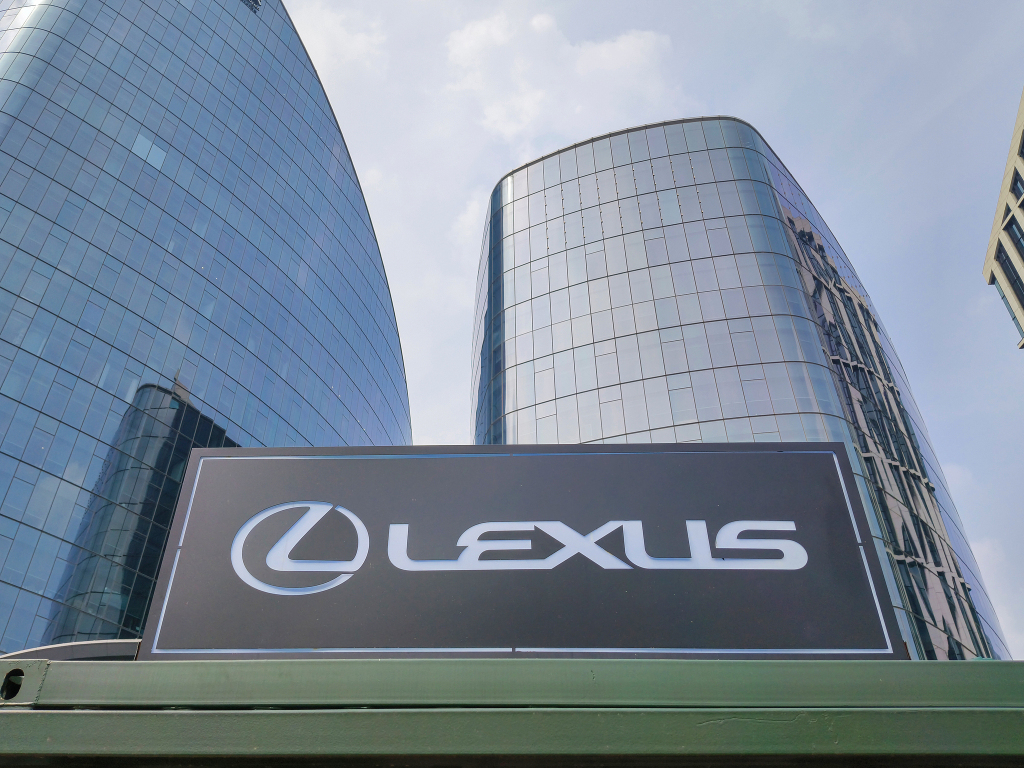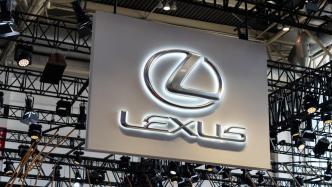
The rumors about Lexus being produced in China have finally come true, and the main driving force behind it is the wave of electrification.
On February 5, Toyota Motor Corporation announced that it had reached a cooperation intention with the Shanghai Municipal Government. Toyota decided to establish a wholly-owned LEXUS pure electric vehicle and battery research and development and production company in Jinshan District, Shanghai, and plans to start production in 2027.
The new company will rely on the advanced and mature industrial chain foundation, logistics network, talent system and market scale of Shanghai and the Yangtze River Delta region to develop LEXUS brand pure electric models.

August 17, 2024, Beijing, Lexus.
In 2004, when Lexus first explored the Chinese market under the name of "Lingzhi", this luxury brand under Toyota might not have expected that it would write a story in China for nearly 20 years as a "fully imported" brand. From initially breaking the monopoly of the German Big Three with "craftsmanship" and "Japanese-style respectful service" to breaking through the annual sales of 200,000 as an imported car in 2019, Lexus has always been like a "lone traveler" with the atmosphere of oriental philosophy, neither participating in the localization price war nor blindly pursuing scale expansion.
But the wheel of history never stops. Faced with the surging wave of China's new energy, this luxury brand, once known for its "pace of haste", finally launched a new narrative that resonates with the times with a proactive localization strategy.
The dramatic changes in the Chinese market have given rise to this transformation. Although Lexus is the "only imported luxury brand with positive growth" in 2024, the growth is minimal. Prior to this, in 2022 and 2023, Lexus' sales had already fallen significantly compared to 2021.
Behind this, it is not only the constraints of import car tariffs and supply chain efficiency, but also reflects the collective anxiety of traditional luxury brands in the field of electrification and intelligence. However, crises often coexist with opportunities. The localization strategy will allow Lexus to be deeply bound to China's new energy industry chain, and the efficiency of localized adaptation from three-electric technology to smart cockpit will be greatly improved. More importantly, judging from Toyota's trend of letting Chinese teams dominate the level of smart electric technology in recent years, Lexus' domestically produced pure electric vehicles will also be directly defined by local R&D teams. The "China-exclusive" technology that was once difficult to implement due to its imported status may be accelerated to appear in the new generation of Lexus electric models.
For Toyota, the localization of Lexus is not a simple transfer of production capacity, but a strategic positioning for the future. After Akio Toyoda announced the "BEV factory" plan, Lexus took on the important task of verifying the high-end implementation of the e-TNGA architecture.
When Toyota's Guangzhou plant reserved a hydrogen fuel cell production line, when the blade battery technology developed by Toyota and BYD was applied to Toyota models, and when its new generation of pure electric models planned to use CATL's Kirin batteries, the outside world had greater room for imagination about Lexus' domestic production project. The deep integration of traditional luxury brands and local supply chains is opening up new room for imagination.
However, there are also doubts in the market: Will localization make the "import halo" fade? Will the direct sales model advocated by new forces impact Lexus' proud dealer system? There may be no standard answers to these questions.
From a more macro perspective, the localization of Lexus coincides with the key node of China's automobile industry to "change lanes and overtake". When Tesla rewrites the global electric vehicle landscape with its Shanghai Super Factory, when NIO and Li Auto gain a foothold in the market above 300,000 yuan, and when Leapmotor rushes into Europe as a reverse joint venture, the localization of Lexus not only concerns the fate of a brand, but also becomes an important example for observing how multinational automakers reconstruct their competitiveness in China's new energy ecosystem.
The industrial logic behind this is exciting. The electrification process in the Chinese market has shifted from "policy-driven" to "technology-enabled". Any company that wants to participate in this game must integrate into the local innovation wave with a more open attitude.
Twenty years is a cycle, and Lexus' choice of localization confirms a simple business truth: there is no eternal business model, only eternal self-innovation. Localization is not the end of the import era, but a new starting point for a better understanding of China, faster response, and deeper integration. When this brand that once conquered consumers with "Oriental aesthetics" begins to tell a new story of "Oriental wisdom" with electric vehicles made in China, the high-end narrative of China's automobile industry will usher in the most dramatic chapter.
